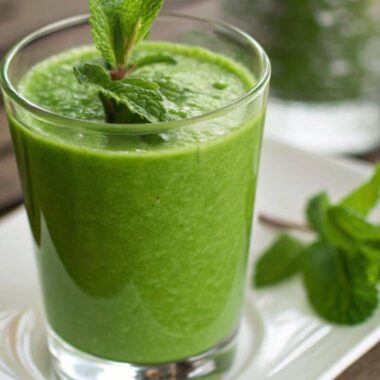I still remember the first time I ran out of eggs while making my grandma’s famous chocolate chip cookies. My heart sank. The dough was already half-mixed, and the store was closed. That kitchen crisis led me down a delicious rabbit hole of egg substitutes. And guess what? I never looked back.
So, what is the most popular egg substitute? Applesauce is the top pick for many bakers. It’s a trusted egg replacement that adds moisture and a bit of natural sweetness, especially in cakes and cookies.
Let’s explore why applesauce stands out as the most common egg alternative in baking and dive into other great vegan egg substitutes you can use in your kitchen.
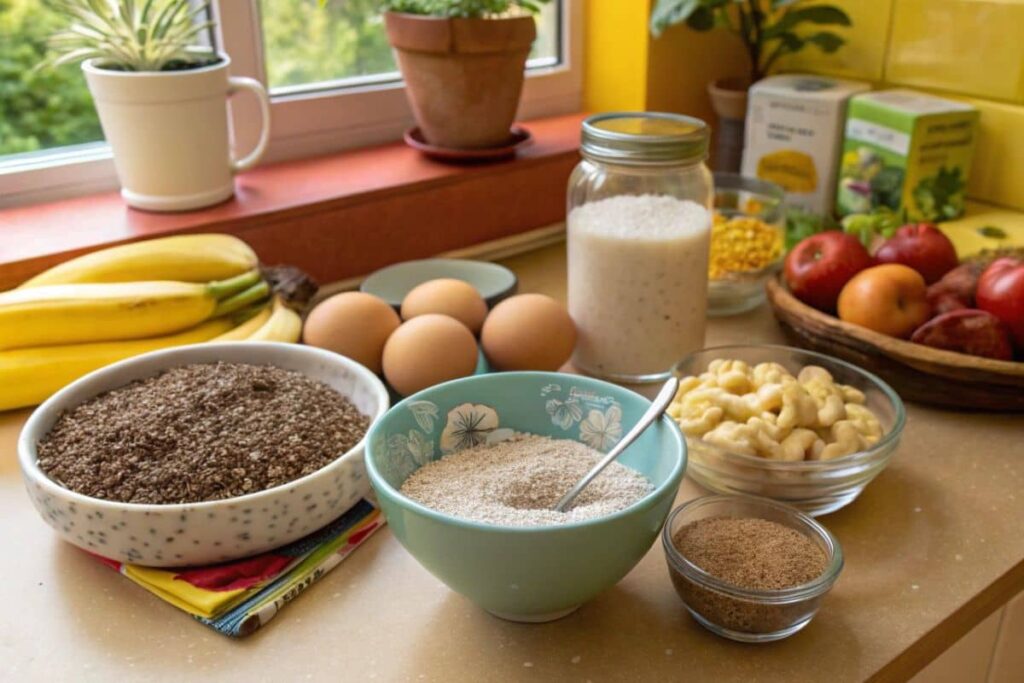
Why People Look for Egg Substitutes
There are several reasons someone might need an egg substitute for baking:
- Food allergies. Eggs are one of the top eight allergens.
- Vegan lifestyle. No animal products means no eggs.
- Health goals. Cutting back on cholesterol or fat.
- Missing ingredients. We’ve all been halfway through a recipe with no eggs in sight.
The good news is, there are plenty of ways to bake egg-free without losing flavor or texture.
So, What’s the Most Popular Egg Substitute?
The answer is simple: unsweetened applesauce.
It’s one of the best egg alternatives in baking because it’s easy to find, inexpensive, and brings the right moisture to your bakes. Plus, it’s a healthy swap that adds a bit of fiber and fruit-based sweetness.
How to use applesauce as an egg substitute:
- Replace one egg with 1/4 cup of unsweetened applesauce
- Works well in cakes, muffins, brownies, and no egg cookie recipes
- Use plain applesauce to avoid overly sweet results
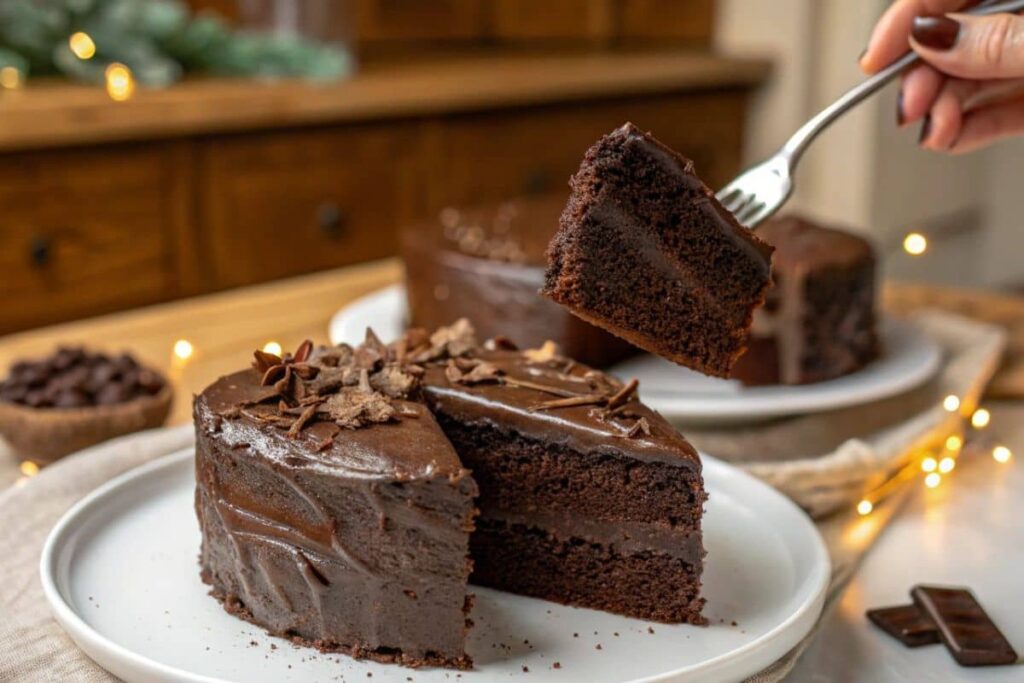
More Egg Replacers You’ll Love
Here are other reliable egg replacements that work for different baking needs:
1. Mashed Bananas
- Use 1/4 cup mashed ripe banana to replace 1 egg
- Adds moisture and subtle sweetness
- Great in brownies, banana bread, and dense cakes
- A favorite egg-free baking option for kids
2. Flax Egg (Flaxseed Meal)
- Mix 1 tablespoon ground flaxseed with 3 tablespoons water, let it sit
- A popular vegan egg substitute with a mild nutty flavor
- Best for cookies, muffins, and pancakes
3. Chia Egg
- Mix 1 tablespoon chia seeds with 3 tablespoons water
- Let it thicken for 5–10 minutes
- Offers good binding for muffins, breads, and breakfast bakes
4. Commercial Egg Replacers
- Brands like Bob’s Red Mill or Ener-G Egg Replacer are made for baking
- Designed for consistent texture in cakes, cookies, and quick breads
- Follow the package instructions for best results
5. Silken Tofu
- Blend 1/4 cup silken tofu to replace 1 egg
- Adds creaminess without flavor
- Perfect for dense cakes, brownies, or even cheesecake-style desserts
Choosing the Right Egg Substitute
You don’t need eggs to make amazing cookies or moist, fluffy cakes. Whether you’re following a plant-based diet, baking for allergies, or just ran out of eggs, egg-free baking can be simple and delicious.
Here’s a quick guide to help you choose the best egg replacer for cake or cookies:
| Baked Good | Best Egg Substitute | Why It Works |
|---|---|---|
| Cookies | Flax egg, banana | Holds shape and adds chewiness |
| Muffins | Applesauce, chia seeds | Keeps them moist and light |
| Cakes | Applesauce, egg replacer | Good rise and fluffy texture |
| Brownies | Banana, silken tofu | Fudgy and rich results |
| Pancakes | Flax egg, applesauce | Soft and easy to flip |
Tips for Successful Egg-Free Baking
- Watch the flavor. Banana and applesauce bring their own taste, which works well in sweet recipes but may not fit all flavor profiles.
- Adjust the liquids. These substitutes can increase the moisture, so reduce other liquids slightly if needed.
- Experiment smartly. Start with tried-and-true recipes or combine substitutes like applesauce and flax egg for extra structure.
FAQ – Egg Substitutes in Baking
What is the best egg substitute for baking cakes?
The best egg substitute for baking cakes is unsweetened applesauce. It adds moisture and binds ingredients well, keeping the cake soft and fluffy without altering the flavor.
Can I use banana instead of eggs in cookies?
Yes, mashed banana is a popular egg replacement in cookies. Use 1/4 cup of mashed ripe banana to replace one egg. It adds a hint of sweetness and makes cookies chewy.
Is aquafaba a good substitute for eggs?
Absolutely. Aquafaba (chickpea brine) whips up like egg whites and is perfect for recipes like meringues, macarons, and mousse. It’s one of the best vegan egg substitutes for structure and texture.
What can I use instead of eggs for vegan baking?
For vegan baking, try options like applesauce, flaxseed meal, chia seeds, silken tofu, or commercial egg replacers. Each one works better in specific recipes depending on texture and flavor.
Do egg substitutes change the taste of baked goods?
Some, like banana or tofu, may slightly alter the flavor, while others like applesauce and flax eggs are more neutral. Choosing the right one helps keep your recipe tasting just right.
Bake With Confidence
Applesauce remains the top choice for a reason. It’s easy, versatile, and perfect for replacing eggs in most baked goods. But don’t be afraid to explore others like flax eggs, mashed bananas, or tofu to find the right match for your recipes.
Have a favorite egg replacement or a no-fail egg-free dessert? Share your tips or questions in the comments – happy baking!
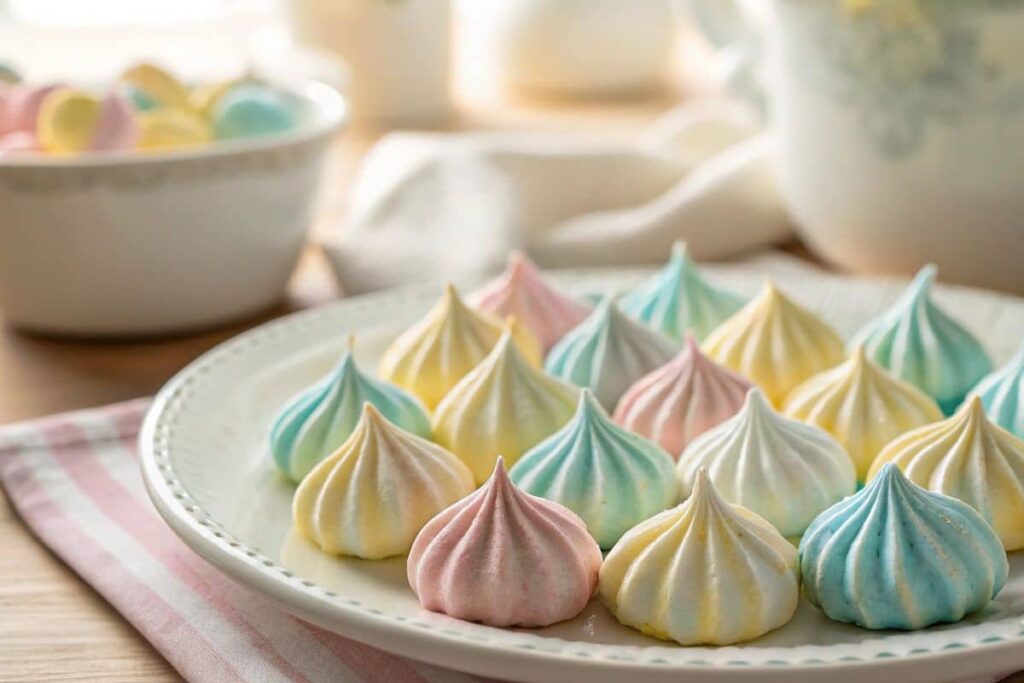
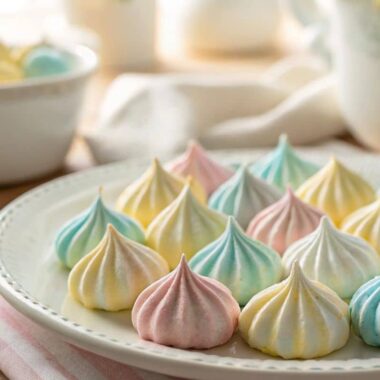
Egg-Free Meringue Cookies with Aquafaba
Equipment
- Stand Mixer or Hand Mixer
- Piping Bag
- Baking Sheet
Ingredients
Main Ingredients
- 1/2 cup aquafaba liquid from canned chickpeas
- 1/4 tsp cream of tartar
- 3/4 cup granulated sugar superfine if available
- 1 tsp vanilla extract
Instructions
- Preheat your oven to 200°F (95°C) and line a baking sheet with parchment paper.
- In a clean mixing bowl, beat aquafaba and cream of tartar on high speed until soft peaks form (about 5–7 minutes).
- Gradually add sugar, one tablespoon at a time, while beating. Continue until stiff, glossy peaks form and the mixture is thick.
- Add vanilla extract and beat for another 30 seconds.
- Transfer the meringue to a piping bag and pipe small mounds onto the baking sheet.
- Bake for 1.5 hours. Turn off the oven, leave the door closed, and let the cookies cool inside for another hour.

